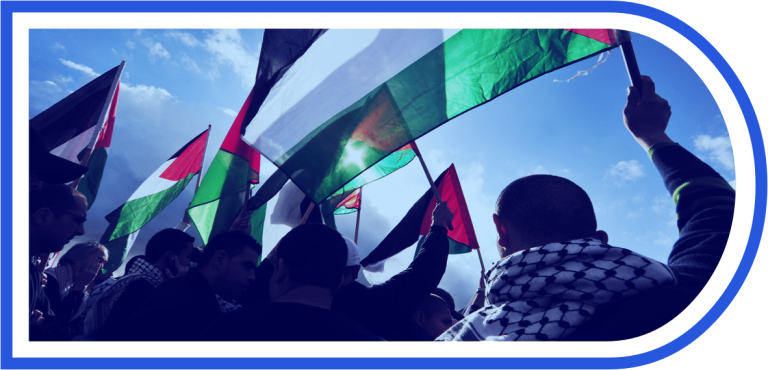PALESTINIANS AND THE REGION
PALESTINIANS AND THE REGION
ABOUT THE PROGRAM
The Palestinian research program has been significantly influenced by the events of October 7, prompting a comprehensive reevaluation of the Israeli-Palestinian paradigm across various domains. This includes emphasizing the need to ensure Israel’s security while acknowledging that military efforts alone are insufficient and require additional civilian elements to stabilize the arena. As Israel seeks normalization with the Arab world, its policies vis-à-vis the Palestinians are often a cause for contention and public debate.
The program seeks to stabilize the region by confronting the burning issues in the Gaza Strip and the West Bank, while working to garner positive regional support. To this end, we work to promote an updated Palestinian Authority that is able to govern effectively, counter terrorism, provide law and order, stop incitement and subscribe to the evolving regional alliances. Thus far, the program developed and promoted a roadmap for ‘the day after’ the war in Gaza, formulated a Palestinian component for Saudi normalization plans, and continues to engage in a comprehensive plan for the region’s future that promotes Palestinian viability.


Program Director
Noa Shusterman Dvir
Researcher
Keren Ben Gal

ABOUT THE PROGRAM
The Palestinian research program has been significantly influenced by the events of October 7, prompting a comprehensive reevaluation of the Israeli-Palestinian paradigm across various domains. This includes emphasizing the need to ensure Israel’s security while acknowledging that military efforts alone are insufficient and require additional civilian elements to stabilize the arena. As Israel seeks normalization with the Arab world, its policies vis-à-vis the Palestinians are often a cause for contention and public debate.
The program seeks to stabilize the region by confronting the burning issues in the Gaza Strip and the West Bank, while working to garner positive regional support. To this end, we work to promote an updated Palestinian Authority that is able to govern effectively, counter terrorism, provide law and order, stop incitement and subscribe to the evolving regional alliances. Thus far, the program developed and promoted a roadmap for ‘the day after’ the war in Gaza, formulated a Palestinian component for Saudi normalization plans, and continues to engage in a comprehensive plan for the region’s future that promotes Palestinian viability.


Program Director
Noa Shusterman Dvir
Researcher
Keren Ben Gal

"One cannot ignore the possibility that the security situation in Jerusalem will deteriorate, particularly given the relatively high support Hamas enjoys in the city. Furthermore, as the war in Gaza subsides, the center of gravity of terrorist activity may shift to the West Bank and from there to Jerusalem. Terror attacks, further erosion of the status quo on the Temple Mount, or moves toward annexation in the West Bank could reignite violence in Jerusalem, similar to the events of Operation 'Guardian of the Walls' in May 2021. Preparations for such a scenario must be made in terms of both prevention and resilience."
Source: MIND policy paper on East Jerusalem after the completion of multi-year national plans (January 2026)
"It is necessary to prepare for the possibility that a DDR process may be implemented under varying levels of consent: from a fully agreed mechanism to limited consent, and even coerced compliance. In such cases, a tailored response must be developed to anticipated challenges including the concealment of weapons or the handover of defective arms; the continued activity of armed militias operating underground or under new names; incitement encouraged by hostile actors; and corruption or forgery in registration and control procedures."
Source: MIND policy paper on the principles for a DDR process in Gaza under the Trump plan (December 2025)
“We assess that it will be possible to address the security issues, first through a side letter with the U.S. administration, which would later be translated into understandings between the United States and regional partners participating in the process. These understandings could preserve Israel’s security interests and enable freedom of action to prevent the strengthening of Hamas and the realization of a ‘Hezbollah model.’”
Source: MIND position paper on the President's Trump's "20-Point" plan for the Gaza Strip (October 2025)
RECENTLY IN THE MEDIA

Keren Ben Gal


Noa Shusterman Dvir


Amos Yadlin & Noa Shusterman Dvir


Noa Shusterman Dvir


